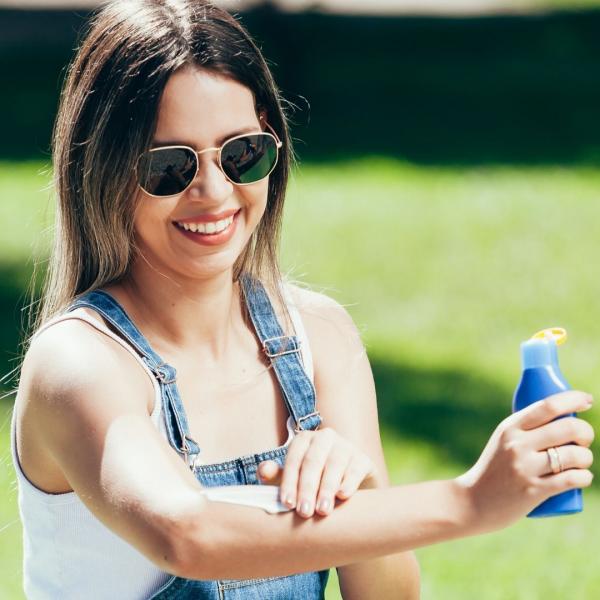After treatment for non-melanoma skin cancer

What follow-up do I need?
Most patients who have had treatment for low-risk skin cancer will not need long-term follow up by their hospital consultant. The follow-up will be done by their GP.
If you have a higher-risk cancer, you will need to see your consultant for checks. This will involve a full skin check and possibly blood tests and scans.
Your follow-up appointments are also a chance to ask any questions you have, and to let your doctor know if you have new symptoms, are having any problems or finding it hard to cope.
If you are between check-ups and have a symptom or problem that is worrying you, contact your doctor or nurse specialist for advice, or to make an appointment, if necessary.
Reduce your risk of further skin cancer
If you have had skin cancer, you have a higher risk of developing another. Take care to check your skin, protect your skin and examine the scar site regularly.

Check and protect
It’s very important to check your skin regularly for changes after treatment for skin cancer. You should also be extra careful to protect your skin from UV rays. Follow the SunSmart code to protect your skin.
Examine the scar site
Check the scar of your skin cancer surgery when the scar is healed. Look for changes such as lumps or bumps, changing colour, crusting or bleeding. This should be part of your regular routine of checking your skin.
Living a healthy lifestyle
Many people want to live a healthy lifestyle after a cancer diagnosis. Get some advice on healthy living here.
While avoiding all sunlight reduces your risk of skin cancer, it is associated with Vitamin D deficiency. Consider having your blood Vitamin D level measured. If low, try eating more foods high in Vitamin D such as oily fish, eggs, meat, fortified milk and cereals or take a vitamin D3 supplement. These are widely available from pharmacies and health food shops. Talk to your GP or dermatologist if you have concerns about Vitamin D, and always mention any supplements when asked about medications.
For more information
Phone
1800 200 700



